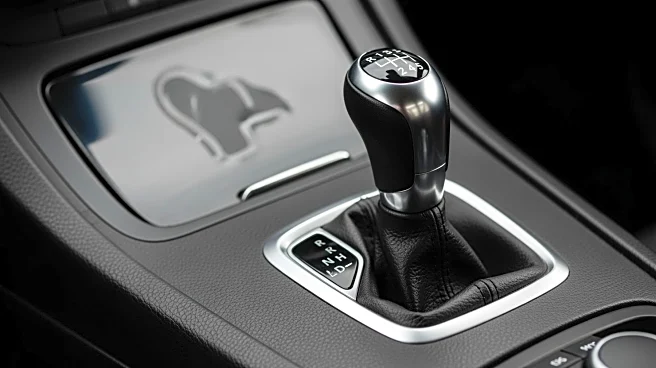What's Happening?
Buick has phased out manual transmission options in its U.S. lineup, marking the end of an era with the discontinuation of the Buick Regal GS. The Regal GS, along with the Verano Turbo, was among the last
models to offer a manual transmission, a feature that has become increasingly rare in the American automotive market. The Verano Turbo, introduced in late 2012, featured a turbocharged 2.0-liter engine and was available with a six-speed manual transmission. Despite its sporty appeal, the Verano Turbo was discontinued after the 2016 model year. The Regal GS, which shared the same engine but offered slightly more power, also lost its manual transmission option in the same year. Buick's decision reflects a broader industry trend away from manual transmissions, which are now largely confined to niche enthusiast models.
Why It's Important?
The discontinuation of manual transmissions in Buick's lineup highlights a significant shift in consumer preferences and automotive industry trends. Manual transmissions, once a staple in many vehicles, are now rare due to the increasing popularity of automatic transmissions, which offer convenience and improved fuel efficiency. This shift impacts car enthusiasts who prefer the driving experience and control offered by manual transmissions. The move also signifies Buick's strategic focus on aligning with market demands and technological advancements, as automatic transmissions become more sophisticated. The decline of manual options may affect the resale value and desirability of existing manual-equipped vehicles, influencing the used car market and collector interest.
What's Next?
As Buick and other manufacturers continue to phase out manual transmissions, the automotive industry is likely to see further advancements in automatic transmission technology, including the integration of hybrid and electric powertrains. This transition may lead to increased investment in developing more efficient and responsive automatic systems. Car enthusiasts may turn to aftermarket solutions or seek out remaining manual models from other brands that still cater to this niche market. Additionally, the shift may prompt discussions on the preservation of manual transmission vehicles as part of automotive heritage, potentially influencing future collector trends and museum exhibits.
Beyond the Headlines
The decline of manual transmissions raises questions about the future of driving culture and the skills associated with manual driving. As fewer drivers learn to operate manual vehicles, there may be a cultural shift away from the traditional driving experience. This change could impact driving education and the perception of driving as a skill. Furthermore, the environmental implications of transitioning to more efficient automatic transmissions could contribute to broader sustainability goals within the automotive industry, aligning with efforts to reduce emissions and improve fuel economy.









